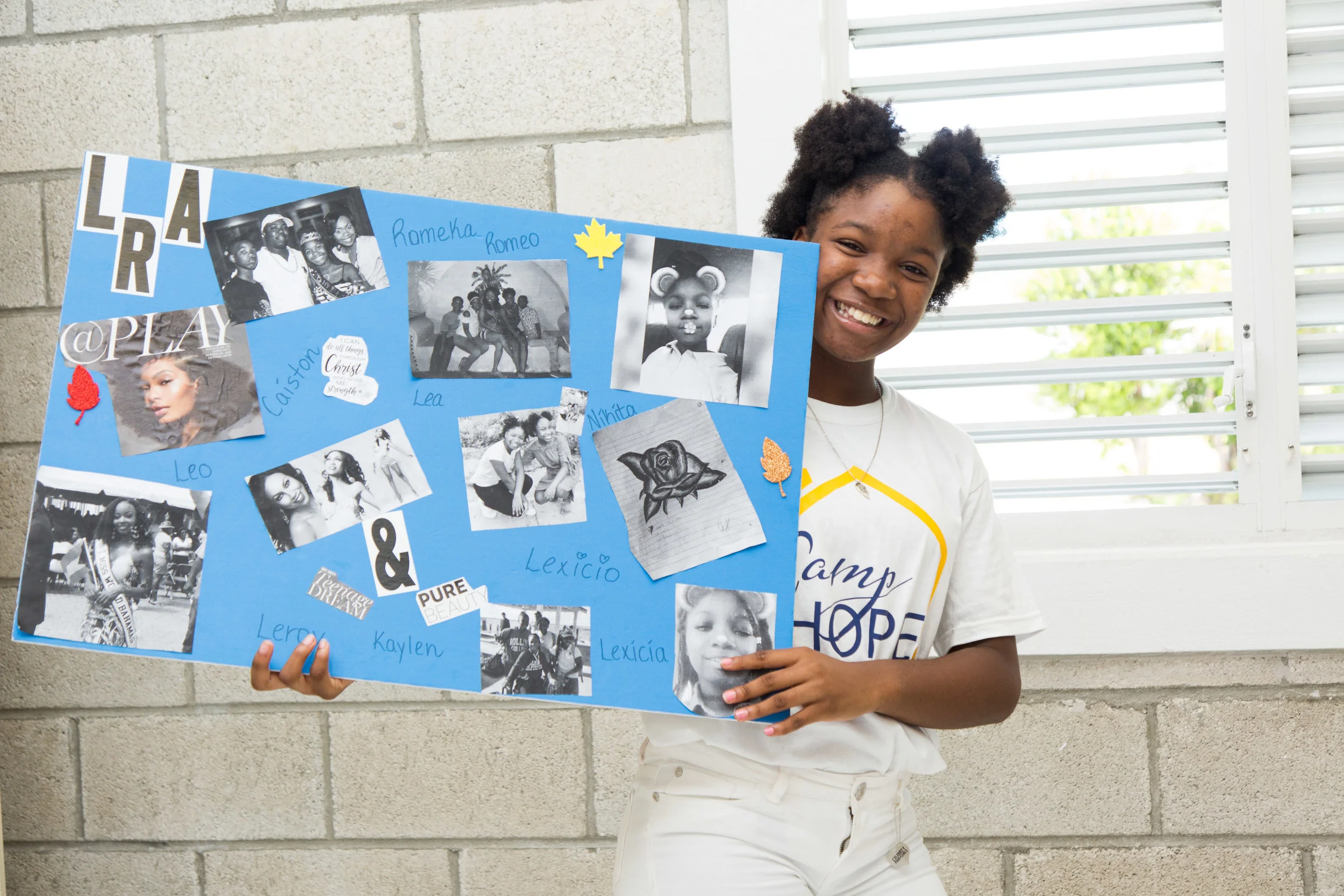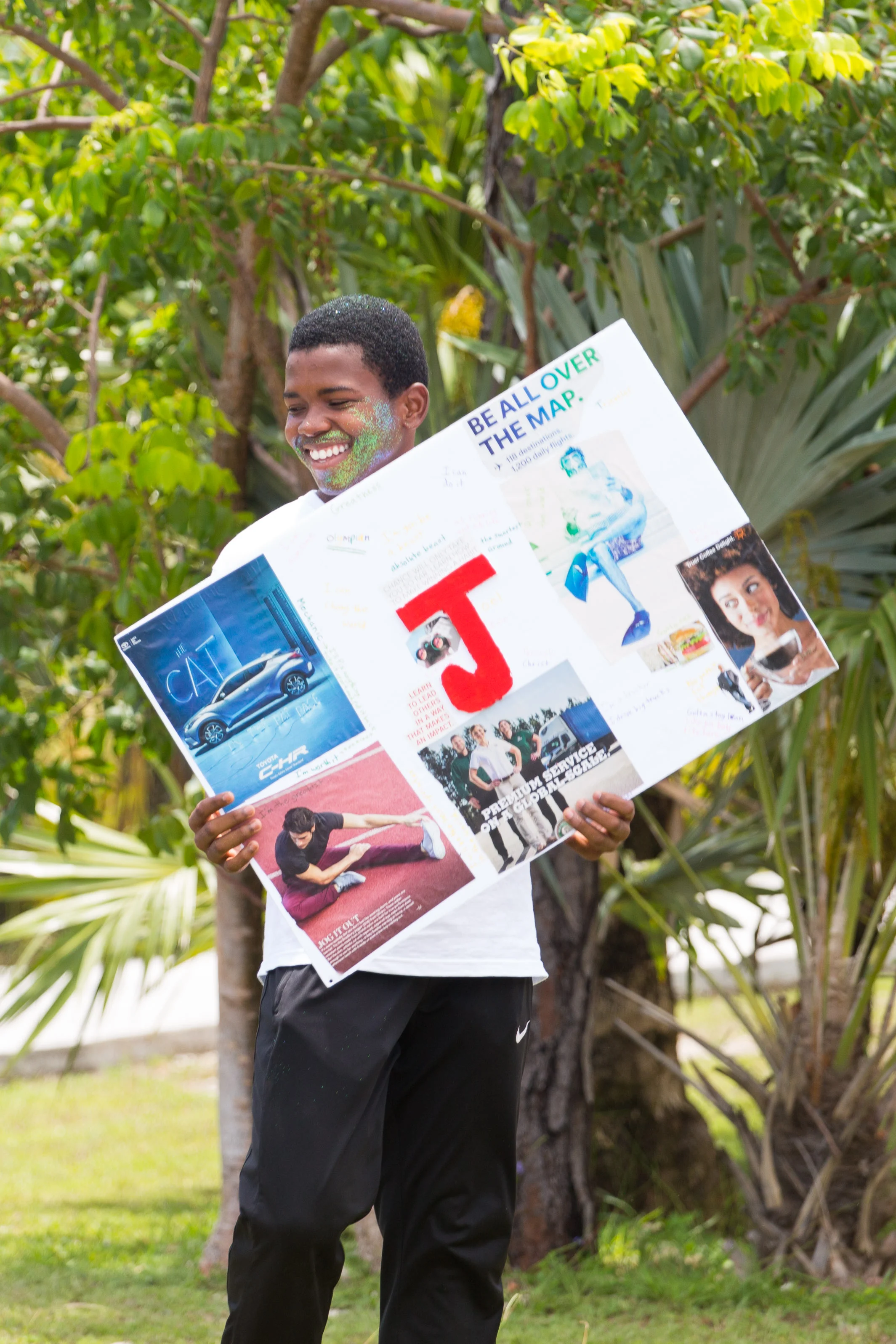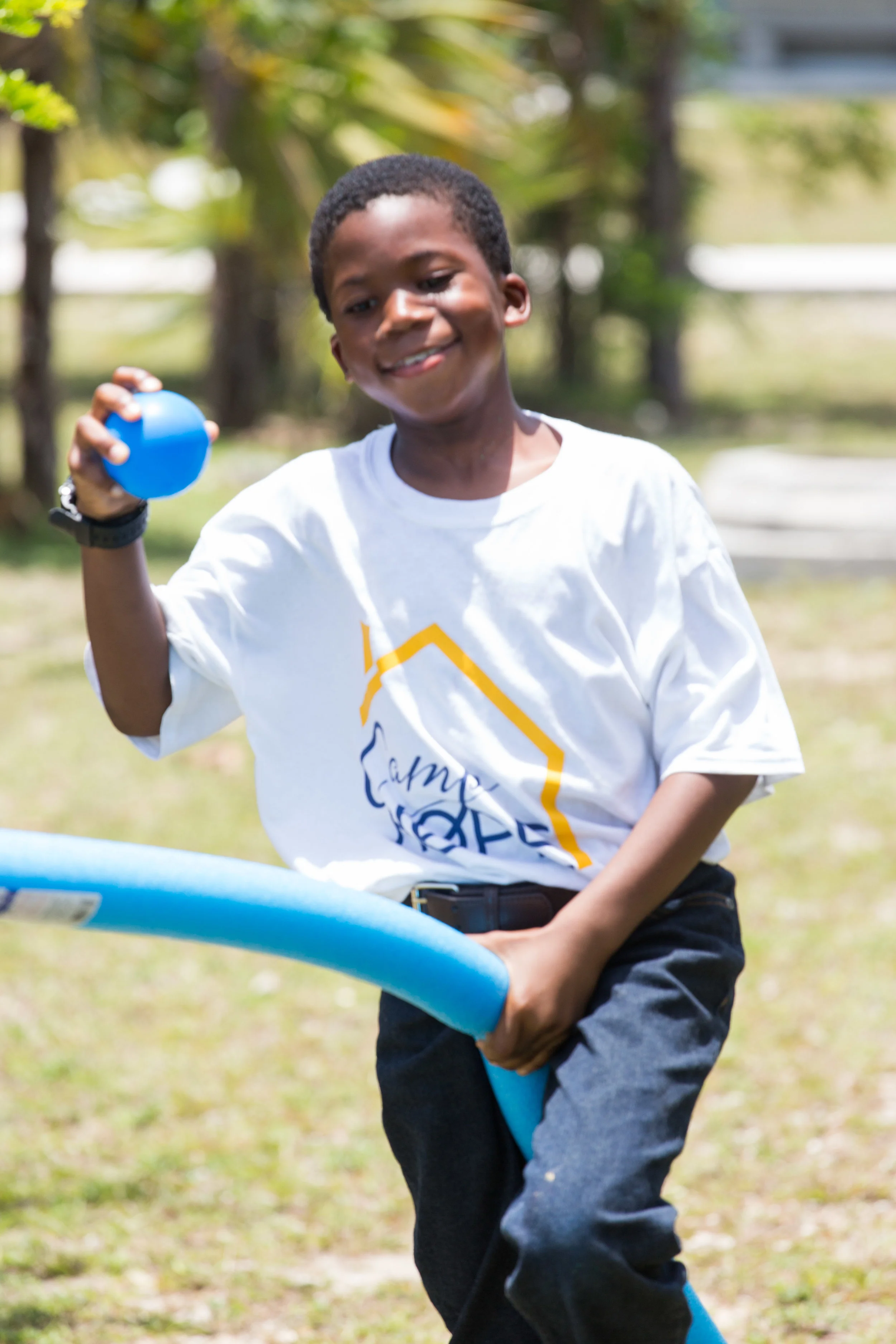CAMP HOPE
At Stories of Hope, our belief is that having hope will lead to a happy, healthy and productive life.
Camp Hope uses fun-filled activities to bring hope into the lives of participants. It is not a substitute for therapy, rather it supports the therapeutic and healing process in a safe, non-traditional, yet developmentally appropriate approach.
JULY 23 - 27 2018
An area of need that we see in The Bahamas is coping with trauma and loss. Due to the limited coping skills and resources that children possess, research has shown that they have greater challenges when faced with negative life experiences. Given our work in the schools and with youth, we are aware of a number of school-aged children who have witnessed or experienced acts of violence, lost a loved one to acts of violence or even from illnesses like cancer. These types of traumatic experiences create numerous social and emotional issues such as poor academic performance, behavioral challenges, anger issues and depression; and unfortunately, we see these patterns persist and intensify into adulthood.
Public Domain conducted a survey with 325 randomly selected individuals asking "Has your child ever experienced a significant and negative life event? (For example: Loss of a close relative, divorce, witnessed violence, abandonment, etc)?" The response was surprising, 30% of respondents who have children under 17 said their child experienced trauma, and 80% of them were interested in the camp.
Stories of Hope plans to pilot a week – long summer camp; Camp Hope. This would be the first of its kind locally. At Camp Hope Bahamas, children will be taught how to cope and build resiliency, while processing the emotions and realities of their experience. We will create a safe space, where participants are not only free to have fun but can process, explore feelings and learn through activities. This may be the first time these children get to talk about or even acknowledge their experiences. A key component of our camp and follow up sessions is fostering both hope and gratitude as two character strengths that serve as coping mechanisms for moving forward.

























Sample Daily Schedule
A sample schedule of a typical camp day:
9:00 AM - 3 PM
9:00 - 9:15 AM - Registration
9:30 - 10:00 AM - Morning Devotion
10:00 - 10:30 AM - Morning Reflection
10:30 - 11:30 AM - 1st Elective Period (Ex: Tennis, Arts & Crafts, Fishing)
11:30 - 12:30 PM - Sharing Circle
12:30 - 1:30 PM - Lunch
1:30 - 2:30 PM - 2nd Elective Period (Games, Hiking)
2:30 - 3:00 PM - Afternoon Reflection & Dismissal
6 to 7 per cohort for the Sharing Circle
10 per cohort for activities
activities that will be used for the camps:
Art
Rock climbing
Water fun
Hiking
Scavenger hunt
Dance

